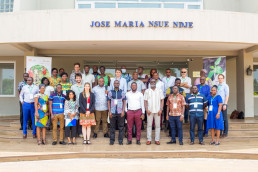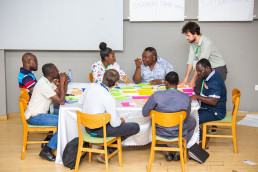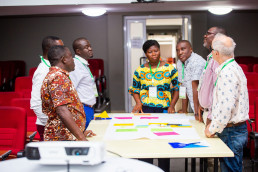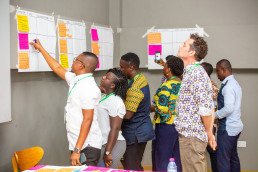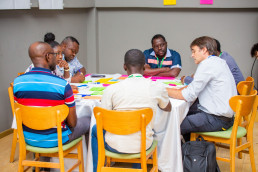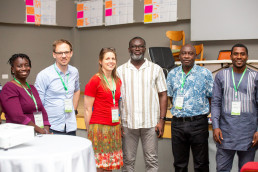The CocoaSoils Program, in collaboration with The UN Environment Programme World Conservation Monitoring Centre (UNEP-WCMC), convened a workshop in Accra, Ghana, to identify research needs to reconcile the social, economic, and environmental objectives in cocoa landscapes at local and national levels in Africa.
The workshop, which brought together researchers, civil society organisations, and public and private sector stakeholders from Ghana, Cameroon, Côte d’Ivoire, and Nigeria, aimed to highlight the opportunities and barriers to achieving these objectives.
It enabled the integration of knowledge and experience by facilitating co-learning between researchers, civil society representatives, and private and public sector stakeholders.
Participants used the theory of change to identify knowledge gaps in cocoa landscapes’ social, economic, and environmental objectives. They recognized the potential for payments for environmental services to support forest protection on farmland as a priority area for further research.
Other knowledge gaps identified included research to understand farmer perceptions of shade trees and the barriers to adopting shade trees, and good agricultural practices. Participants also called for studies to explore how to achieve climate-smart agriculture and regenerative cocoa and improve the participation of women and youth in sustainable cocoa production.
They mentioned climate hazards as significant risk factors in cocoa production and reiterated the need to integrate agroforestry into livelihood-based approaches. The participants also emphasized the urgent need for frequent interactions between stakeholders in the cocoa sector.
Click here to view the results of participants’ feedback session.
